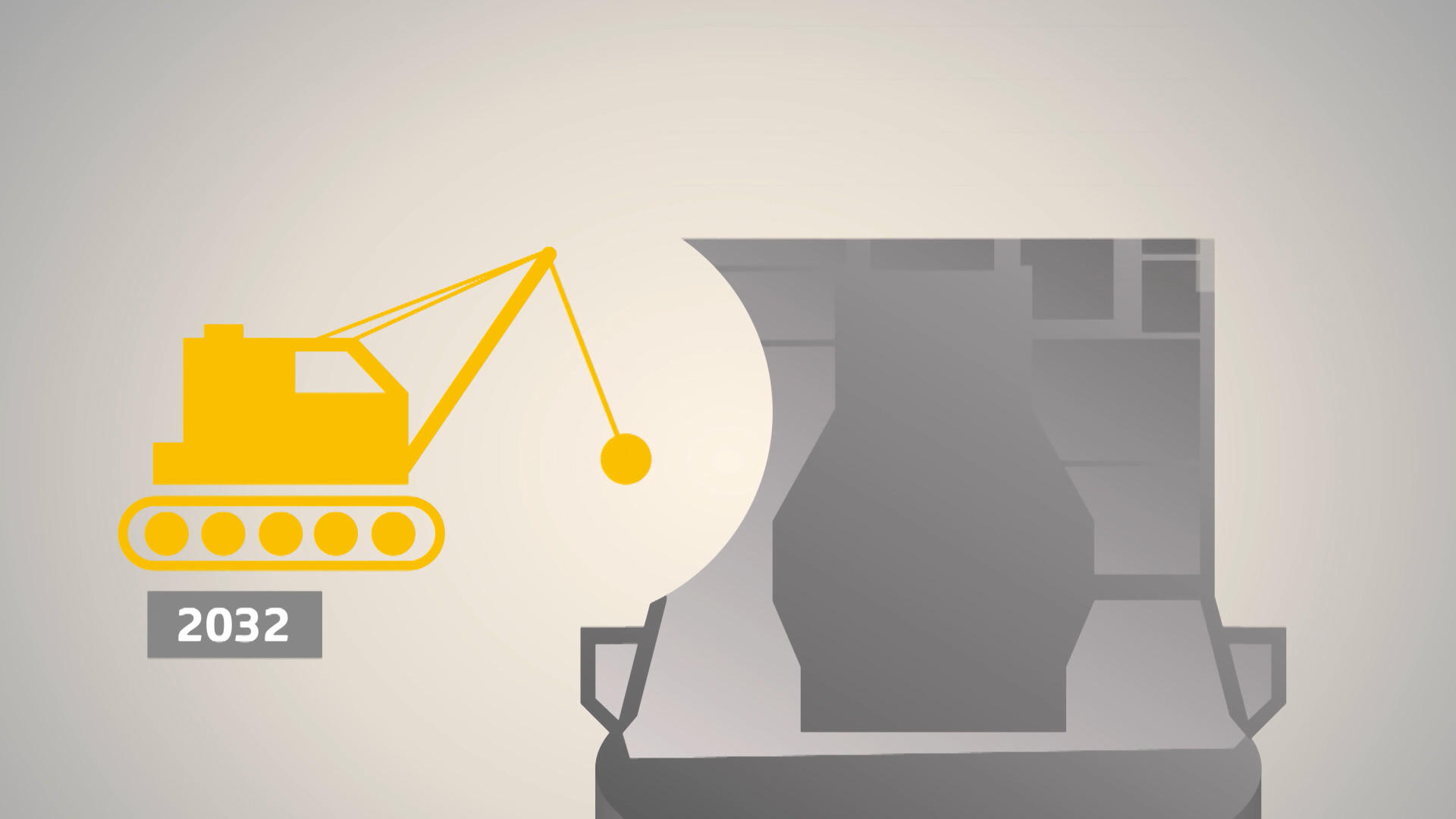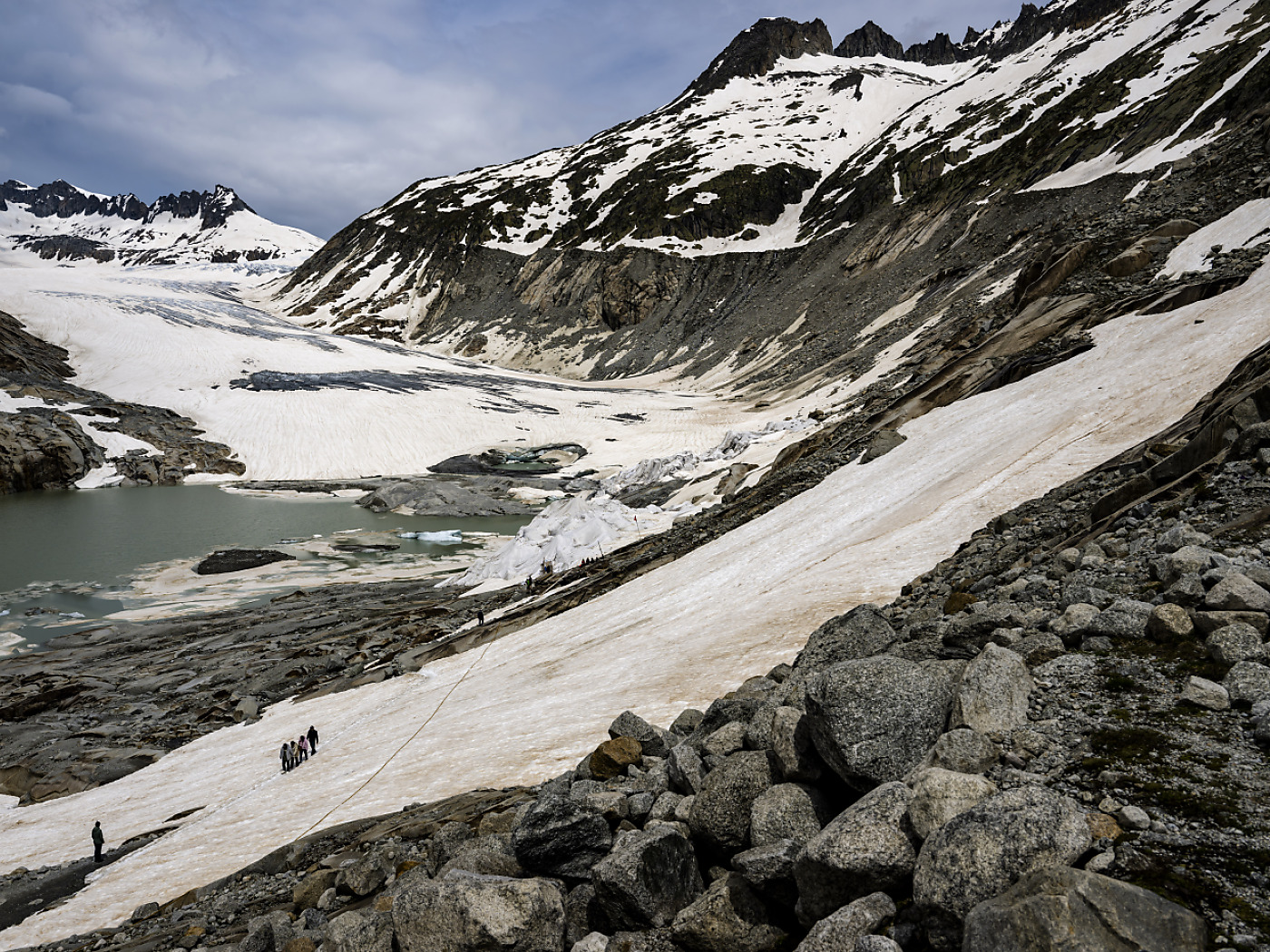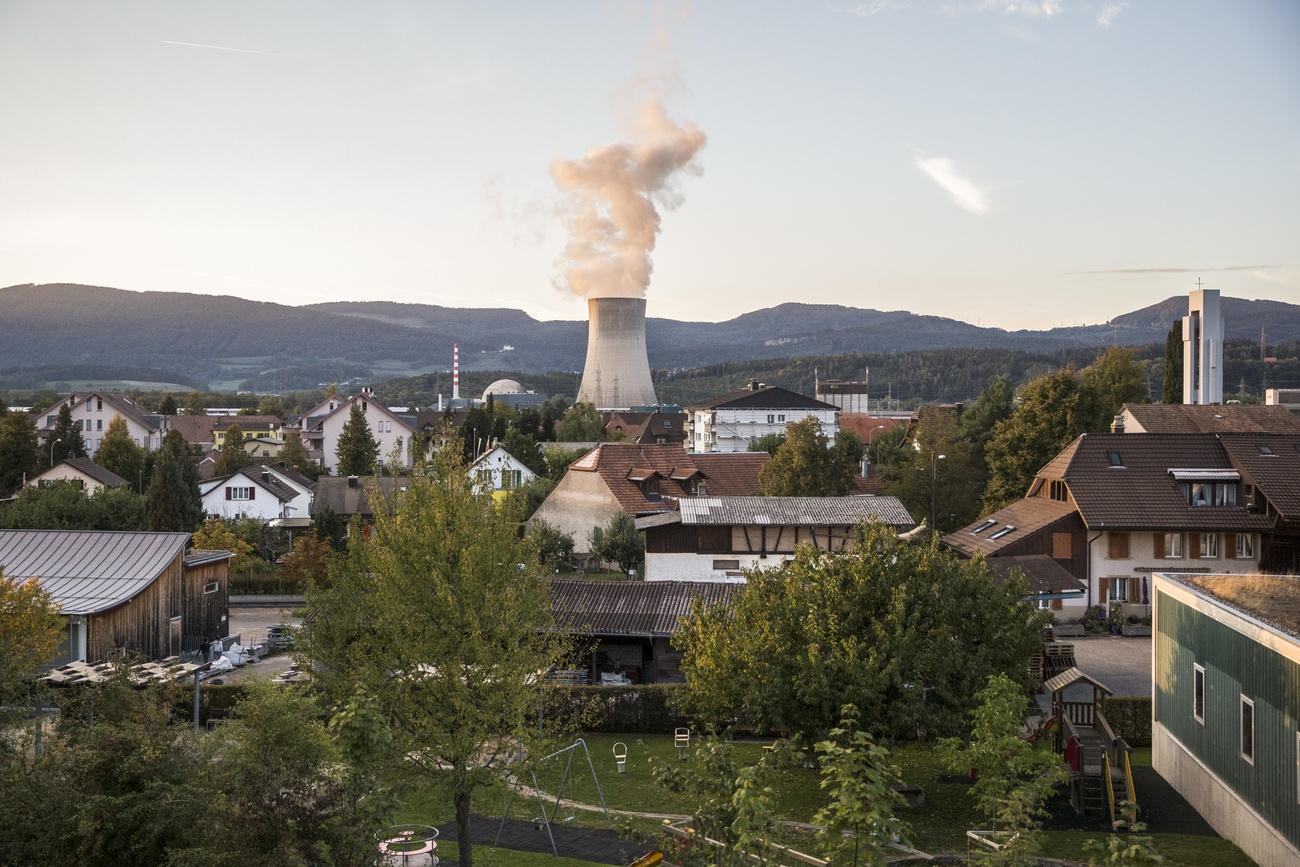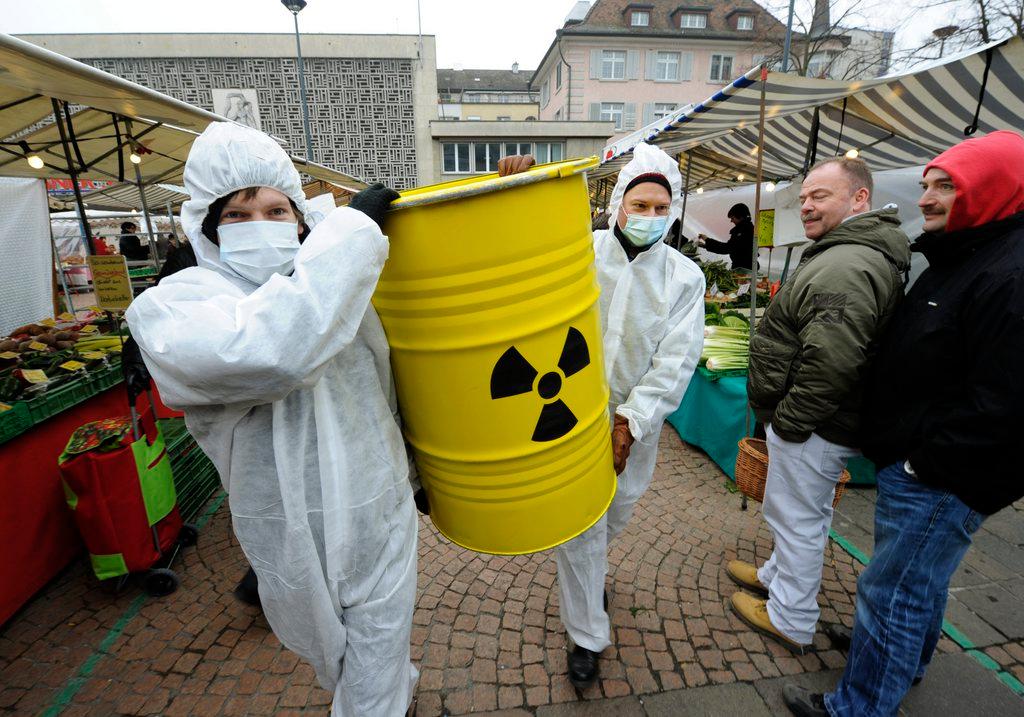Switzerland proceeds with historic nuclear shutdown

The 47-year-old Mühleberg nuclear power plant, near Bern, was permanently switched off on Friday. This is the first of five Swiss nuclear power reactor to be decommissioned.
The Mühleberg nuclear power station was officially taken offline at 12.30pm, when the last control rod was removed from between the fuel elements. This stopped the chain reaction and deactivated the reactor. The process took three seconds.
The event was considered so important in Switzerland that viewers could follow the progress live on television. Cameras showed a close-up as the red buttons were switched off. There were a few tense moments as everything was checked. “The reactor is now off,” said the manager, Roland Bönzli.
The pressure in the reactor will be steadily reduced and water temperature is due to drop from 280 degrees Celsius to less than 100C.
Situated around 15 kilometres from the Swiss capital Bern, the reactor has been in service since 1972 and provided 5% of the electricity used in Switzerland. BKW, the operator of Mühleberg plant, decided to close the plant in 2013 for business reasons.
BKW said on Friday that it was “organisationally and financially well prepared for its largest project since the construction of [Mühleberg] about 50 years ago”.
It added that the site had generated enough electricity to cover the energy consumption of Bern for more than 100 years.

More
Decommissioning a nuclear power plant
Decommissioning work
The plant will be completely decommissioned by 200 people over a 15-year period, starting on January 6, 2020. The dismantling and destruction of equipment used for producing electricity, such as turbines, generators and condensers, will continue until October 2020. The central building will then be prepared for the dismantling, decontamination and packaging of material.
By 2024 all nuclear fuel rods will have been transported to the central interim storage facility for high-level radioactive waste in Würenlingen in northern Switzerland. According to the operator, 98% of the radioactivity will have left the Mühleberg nuclear power plant. Spent uranium rods will remain on site for a few years. BKW says radioactivity will be eliminated from the Mühleberg site by 2031. It is expected to cost CHF1.4 billion ($1.4 billion) to totally dismantle the plant and manage the radioactive waste.
Reactions
There have been mixed views on the end of Mühleberg. Some locals told TV reporters that the plant had been part of the landscape, whereas the plant’s workers said they felt a mixture of pride and sadness.
Transport and Energy Minister Simonetta Sommaruga tweeted that the future belonged to local, clean energy from the water and the sun.
Historisch: Am 20. Dezember wird das AKW #MühlebergExternal link abgeschaltet. Die Zukunft gehört der einheimischen, sauberen Energie aus Wasser und Sonne. #EnergiewendeExternal link pic.twitter.com/Br5m92m24lExternal link
— Simonetta Sommaruga (@s_sommaruga) December 19, 2019External link
Anti-nuclear campaigners said they welcomed the move. Philippe de Rougement, president of the campaign group Sortir du Nucleaire, told Reuters: “We would have loved it to close much earlier”.
Switzerland’s use of nuclear energy had delayed its development of renewable energy sources, he said.
A parliamentarian from Green Party has already tweeted that the next plant to go should be Beznau.
Anti-nuclear activist group Greenpeace called the shutdown a historic success.
“The decommissioning of the Mühleberg nuclear power plant will make Switzerland a little safer,” says Greenpeace’s Florian Kasser. But he warned that there is no safe storage facility for high-level radioactive waste in Switzerland or abroad.
But Swissnuclear, the organisation representing Swiss nuclear power plant operators, said the Mühleberg shutdown was a major loss for Switzerland’s electricity supply, particularly in winter. It pointed out that Switzerland’s dependency on electricity imports from abroad would increase.

Nuclear energy on way out
Switzerland has five nuclear power stations which generate about 34.5% of the nation’s energy needs; around 60% comes from hydropower. It uses nuclear energy to produce electricity, in research and medicine. One of its remaining reactors, the Beznau I facility in canton Aargau, is the world’s oldest still in operation, built in 1969.
In 2011, Switzerland decided to phase out nuclear power, which supplies an average 35% of the country’s electricity production, following the Fukushima disaster, but there is no clear timetable for decommissioning all plants.
In May 2017, Swiss voters endorsed a new energy law that aims to promote renewable energy by banning new nuclear power plants and reducing energy consumption.

More
How Switzerland is dismantling its first nuclear power station

In compliance with the JTI standards
More: SWI swissinfo.ch certified by the Journalism Trust Initiative























You can find an overview of ongoing debates with our journalists here . Please join us!
If you want to start a conversation about a topic raised in this article or want to report factual errors, email us at english@swissinfo.ch.